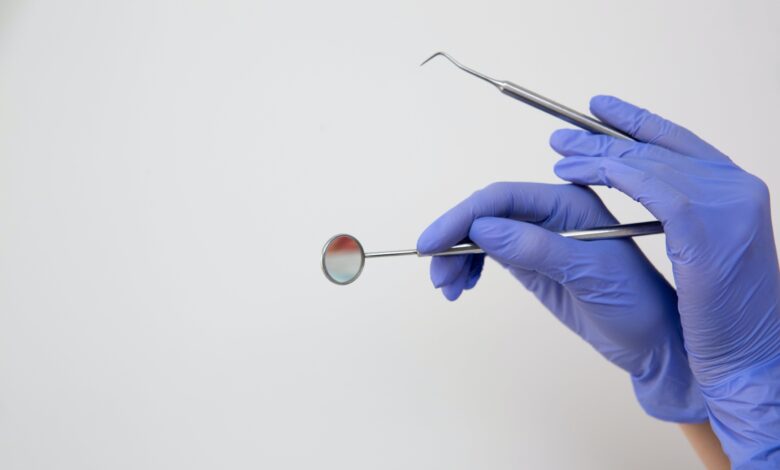
How Long Until a Tooth Infection Kills You?
If a tooth infection is left untreated, it can spread to other bodily parts in a matter of weeks or months, with potentially fatal consequences. Although it is uncommon, a tooth infection can be fatal. The length of time it takes for a tooth infection to kill a person might vary based on the illness’s severity and general health. Because germs can migrate to the crevices in the face and neck and restrict airways, in certain circumstances death can happen within days. In some situations, the systemic spread of bacteria can result in sepsis, which, if left untreated, can be fatal within weeks or months.
If you think you could have a tooth infection, you should get medical attention right once. If a tooth infection is not treated, it may spread to other parts of the body and cause dangerous, possibly fatal consequences such as:
- Sepsis: a severe reaction by the body in response to the infection.
- Ludwig’s angina: a serious bacterial infection that affects the floor of the mouth, underneath the tongue.
- Necrotizing fasciitis: a severe infection that leads to soft tissue death in the body.
- Mediastinitis: an inflammation of the mediastinum, which is a space located between your lungs.
- Endocarditis: an inflammation of your heart’s inner lining, called the endocardium.
- Cavernous sinus thrombosis: a dangerous blood clot of the sinuses, just under the brain and behind the eyes.
- Osteomyelitis: a bone tissue infection.
- Brain abscess: a collection of pus that can form in the brain.
Please remember that this is only a general summary and should not be used in place of expert medical advice. Kindly get advice from a skilled healthcare expert if you are concerned about your health.
What signs of an infection in the teeth are present?
Depending on how severe the infection is, different tooth infections might present with different symptoms. Typical symptoms include the following:
- Intense, continuous, throbbing toothache that may radiate to your neck, ears, or jaw.
- discomfort or pain in both hot and cold weather.
- Aches or pains caused by the pressure of biting or chewing.
- Fever.
- swelling in your neck, cheeks, or face that could make it hard to breathe or swallow.
- painful, enlarged lymph nodes in your neck or beneath your jaw.
- Bad taste in your mouth.
- If the abscess bursts, you may experience an abrupt surge of salty, foul-tasting, and foul-smelling fluid in your mouth along with pain alleviation.
It is crucial to get immediate medical attention if you think you may have a tooth infection. If a tooth infection is not treated, it may spread to other parts of the body and cause dangerous, possibly fatal consequences. Please remember that this is only a general summary and should not be used in place of expert medical advice. Kindly get advice from a skilled healthcare expert if you are concerned about your health.
How may a dental infection be identified?
A dentist will usually examine the afflicted area physically and may request an X-ray to locate the abscess in order to diagnose a tooth infection. The dentist will tap the tooth to measure its sensitivity to pressure or touch during the physical examination. Along with looking for any indications of redness or inflammation in the mouth, the dentist may also check for swelling in the lymph nodes or gums. The dentist may request additional testing, such a CT scan, to determine the extent of the illness if they believe it has migrated outside of the tooth.
This is not meant to replace expert medical advice; rather, it provides a general summary. Kindly get advice from a skilled healthcare expert if you are concerned about your health.
Can a tooth infection be cured with antibiotics?
Antibiotics are not usually required, however they can be useful in treating dental infections. The severity of the infection and the patient’s general condition will determine the kind of antibiotic that is prescribed. The following are the most often prescribed antibiotics for tooth infections:
- When it comes to treating a tooth infection, amoxicillin is frequently the first option. For three to seven days, a dosage of 500 mg taken three times a day is advised.
- Another popular antibiotic for treating dental infections is penicillin. For three to seven days, 500 mg should be taken four times a day.
- Clindamycin: People who are allergic to penicillin are usually prescribed this antibiotic. For three to seven days, a dose of 300 mg taken four times a day is advised.
- Azithromycin: This antibiotic can occasionally be used in place of penicillin or amoxicillin. It is advised to take a loading dose of 500 mg on day 1 and then 250 mg every day for the next four days.
It is crucial to remember that not all tooth infections require the use of antibiotics. In certain instances, the infection could be able to recover on its own or with the assistance of additional procedures such root canal therapy or tooth extraction. You should see a trained healthcare professional right away if you think you may have a tooth infection. They can assist in figuring out the best course of action for your particular requirements.



